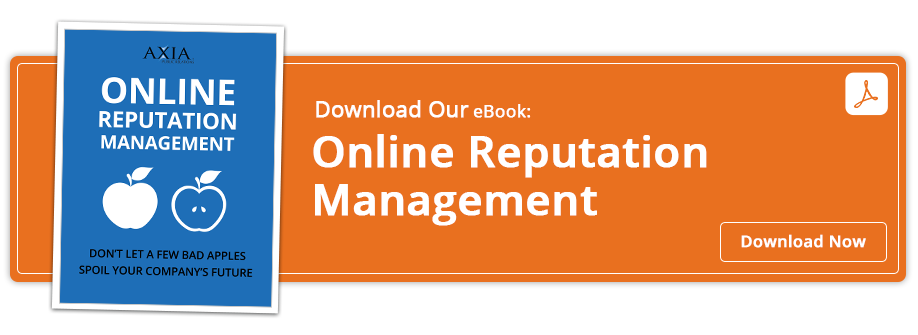Earth Day matters, part 1 of 2: 5 business reasons why environmental sustainability and corporate social responsibility are important
By Michelle HeatherlyApril 22, 2014

Yes, today (April 22) is officially known as Earth Day – a day to show support for environmental protection. So, why tie your brand into environmental sustainability and why be a good corporate citizen of the environment and natural resources? Because it’s important, plain and simple. Here are five business reasons why:
1. Being a good corporate citizen of the environment and natural resources makes and saves you more money.
Need proof? Just ask 14-year-old Suvir Mirchandani. On March 29, 2014, a CNN online report stated that as a result of this middle schooler’s science fair project, it was determined that if the government would simply switch from Times New Roman to Garamond font, a thinner and lighter-weight typeface, in official government documents, it could reduce ink costs by 30 percent and save $234 million per year with this act alone. CNN added that each federal government employee prints 7200 pages per year and 30 pages per work day, so just by implementing this simple change, theoretically it would also use less paper as a byproduct, as Garamond takes up less space.
Though this reason may be the most immediately important to you, there are more business reasons than just the positive financial implications.
2. Having environmental sustainability and CSR programs strengthens your brand.
These programs show that you have a legitimate concern for the effects you have on society and the environment. A recent CSRHub study reported a strong link between brand strength and sustainability. In 2012, a TIME article reported that the majority of Fortune 500 companies issue a CSR or sustainability report. If the top 500 companies in the U.S. by revenue are implementing these programs, there’s a good chance it works, right? In the article, Eric Orts, professor of legal studies and business ethics at Wharton and director of the school’s Initiative for Global Environmental Leadership, states, “For companies to take CSR seriously, they have to be integrated into the DNA of the enterprise. Companies need to say: ‘We want to make money, sure, but we also care about our effect on society and the environment. And that comes through in the kinds of jobs we provide, the kinds of products we make and the ways in which we use resources.’”
3. Sustainability and corporate social responsibility develop trust, boosting your credibility.
It is said that people do business with people, not businesses. It is also said that people do business with people they know, trust and like. CSR helps you build relationships with your stakeholders and customers by creating two-way dialogues and boosting your credibility in the marketplace. It says you care about matters that are most important to individuals and society and that, more importantly, you’re taking action and addressing them. Keep in mind: You really do have to legitimately care. “Greenwashing” doesn’t work – in other words, simply over-hyping and promoting a green initiative for publicity’s sake can actually hurt trust and harm your brand. Make sure you are scaling back on your own negative impacts before promoting all your good “green” doings.
4. CSR and caring for the environment proactively helps with reputation management.
Address company issues like compliance, risk and opportunity. Taking measures to be an exceptional corporate citizen and conserve our natural and environmental resources builds up goodwill for you among your target audiences in advance of a future crisis or any potential negative perceptions of your organization or industry. This is another blog post in itself, but I think the best way to address reputation management (and online reputation management in particular) is with good PR. More on how advanced actions through CSR and sustainability can help with the public’s perception of you in the event of a crisis in this age of social media.
5. Genuinely showing care and concern for the world around you helps differentiate you from your competition.
A Smartplanet.com article states, “At the Internet Week New York conference, corporate executives say consumers expect more when it comes to companies’ attempts to ‘do good.’” An Entrepreneur article details five ways to outshine the competition as: price, adding value, convenience, trust and conscience. This means that showing you’re a good corporate citizen through CSR and sustainability programs not only builds trust, but shows you have a conscience.
Meeting this need of conscience is critical in standing out from your competition. Kim Gordon writes,
“Businesses with a conscience care for their communities, others who are less fortunate and the world around them. Does your business engage in green practices? What are your charitable affiliations? Detail your activism on your website, in your company newsletter or through in-store promotions. Get involved at the local level and encourage your customers to participate, such as through food or clothing drives, or by cleaning up the local park. You’ll establish a positive relationship with customers that sets you apart from your competition and motivates like-minded customers to buy from you.”
Want more great ideas on how to tie your brand to environmental sustainability and good corporate citizenship? I’m glad you asked. See my second blog post on this topic, Part 2 of 2 for "4 Ways."
A relevant read is the Five C’s of Sustainability Branding – it goes hand-in-hand with the business reasons I’ve shared above. This is a list Marc Stoiber, the vice-president for green innovation at Maddock Douglas and a veteran in the relatively young field of sustainability, created in 2010 with Bloomberg Businessweek. It details what companies and marketers need to do to make “greenness” (consideration for the welfare of the planet) take hold within their firms and, more important, in the marketplace through five C’s: competitive, consumer facing, core, conversational and credible.
For more information on the resources referenced in this article see Earth Day 2014: Green Cities, 5 C’s of Sustainability Branding from Bloomberg Businessweek online, Entrepreneur’s 5 Ways to Outshine the Competition, the Brand Finance Brand Strength Index (BSI), CSRHub study (2013), TIME article (2012) and Smartplanet.com on the BP oil spill.
 Previously the director of client engagement for Axia Public Relations, Michelle Heatherly’s worked to integrate clients into the firm and to ensure they are personally delighted and their expectations are exceeded. Her personal mission is to live a life that matters and to inspire others to do the same.
Previously the director of client engagement for Axia Public Relations, Michelle Heatherly’s worked to integrate clients into the firm and to ensure they are personally delighted and their expectations are exceeded. Her personal mission is to live a life that matters and to inspire others to do the same.
Topics: public relations, reputation management, online reputation management



Comment on This Article